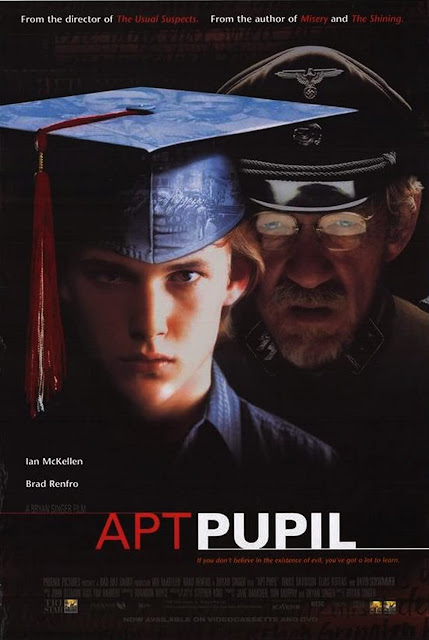The trend of existing television properties being re-explored for transition to the big screen (and vice versa) continues with no signs of slowing down. Some have been successful (21 Jump Street) and some have not (CHiPs), and, to no one’s surprise, the “some” that haven’t been successful are leading the pack. With so many of these rebooted properties hailing from bygone eras, mostly the ‘80s and ‘90s, what’s getting lost in translation, and what set off those properties so much, is the nostalgia factor. 21 Jump Street was not a good show, even if you loved it as a teen and had the biggest crush on Richard Grieco. To replicate what you loved about it would've been impossible, so producer Jonah Hill and its writers/directors Phil Lord and Christopher Miller did the next best thing: reinvigorated the concept of adults infiltrating a local high school to root out crime, but all the while recognizing it was a ludicrous concept, even having their own characters call out this concept and recognizing the meta-ness throughout. It was satire, spoof, and a straight up reboot all at once, and it was massively successful. But the creative trio didn’t stop there: after already doing the impossible, they did the more impossible: made a sequel that’s just as good, smart, and hilarious.
Baywatch is desperate to exist on this same plane. It thinks that by replicating the slow-motion beach run with its cast gorgeously and handsomely displayed in their red bathing suits that reveal or contour to their perfect bodies, but this time having someone fall down, it will be just as clever and meta – the beach run, which is old, but then someone falls, which is new. Baywatch: The Movie is like the old thing, but it’s also this new thing, which is stupid on purpose. I mean, falling down is funny, right?
Baywatch hails from the Farrelly Brothers school of comedy philosophy: crude is funny – the cruder, the better. No one looks back on the Baywatch series and considers it any kind of high-art entertainment. Even using the word “art” in the same sentence as “Baywatch” feels really slimy. But at least it had an identity – good or bad as that is. (The less said about Baywatch Nights, a quasi-Baywatch meets The X-Files, the better.) Baywatch: The Movie doesn’t have an identity. With a script by Damian Shannon and Mark Swift, who’d previously explored pre-existing properties to – no bullshit – better results with Freddy vs. Jason, Baywatch is bits and pieces and cameos from the original series (including an appearance from Pamela Anderson, who is given not a single line of dialogue) attempting to exist in a broad Animal House-like atmosphere. Among the incessant f-bombs and high school locker room dialogue are too-long scenes of painful back-and-forth diatribes or gutter-dwelling moments like the one where a character’s erection gets caught in a beach chair, to which the film dedicates a maddening amount of time and which couldn’t be unfunnier if tried. This approach doesn’t just not work but it feels desperate and forced, almost knowing that it doesn’t have enough substance from which to mine real, smart comedy. (The only other way to have re-explored Baywatch, and which perhaps would have been the better approach, would have been as a straight-faced comedy.)
Personally, I love The Rock. He’s an extremely likable, charismatic, and decent seeming guy. But he’s yet to wrangle himself a film that’s worthy of his talents as a performer. Sure, he’s found success with the Cars Go Fast series, and that’s great considering they prove to be billion dollar endeavors, but the guy who was pre-sold to us all as the next Arnold Schwarzenegger (their passing-by scene in The Rundown where Arnold winks and tells him “good luck” wasn’t just a random joke but a spiritual passing of the torch) has yet to forge the same kind of path. (Dude even starred in the Rampage movie…I mean, come on.) In Baywatch, he’s wasted, forced to curb his appeal as a comedic actor and play the straight man against his wild and crazy lifeguard staff, which includes Zac Efron whom we can at least praise for being in something way, way better than the despicable anti-comedy Dirty Grandpa.
Ultimately, Baywatch doesn’t even have enough faith in the show’s original concept to set the action at the beach and have a conflict revolve around the beach, instead relying on a tired drug-distribution business that lifeguards, ordinarily, would have nothing to do with. It’s very by-the-numbers, derivative of previous comedies better able to rely on raunchy dialogue while still having heart, but worst of all, simply not funny. Literally the only thing it has going for it is several scenes of Alexandra Daddario in a bathing suit. I know it's 2021 and I'm not supposed to say things like that anymore but a truth is a truth.
Did the Baywatch legacy deserve better? Probably not. But audiences at least deserved a better time out at the multiplex. Though he’s gone back to this well several times already, picture a Will Ferrell-led Baywatch film which sees him and his doughy body stepping into the Mitch Buchannon role – him and his loyal band of miscreants – while borrowing absurd plots from the show’s original run (killer crocodile, anyone?) and playing it all entirely straight. That right there, though perhaps overdone, sounds more appealing than dick jokes and fall-downs.







